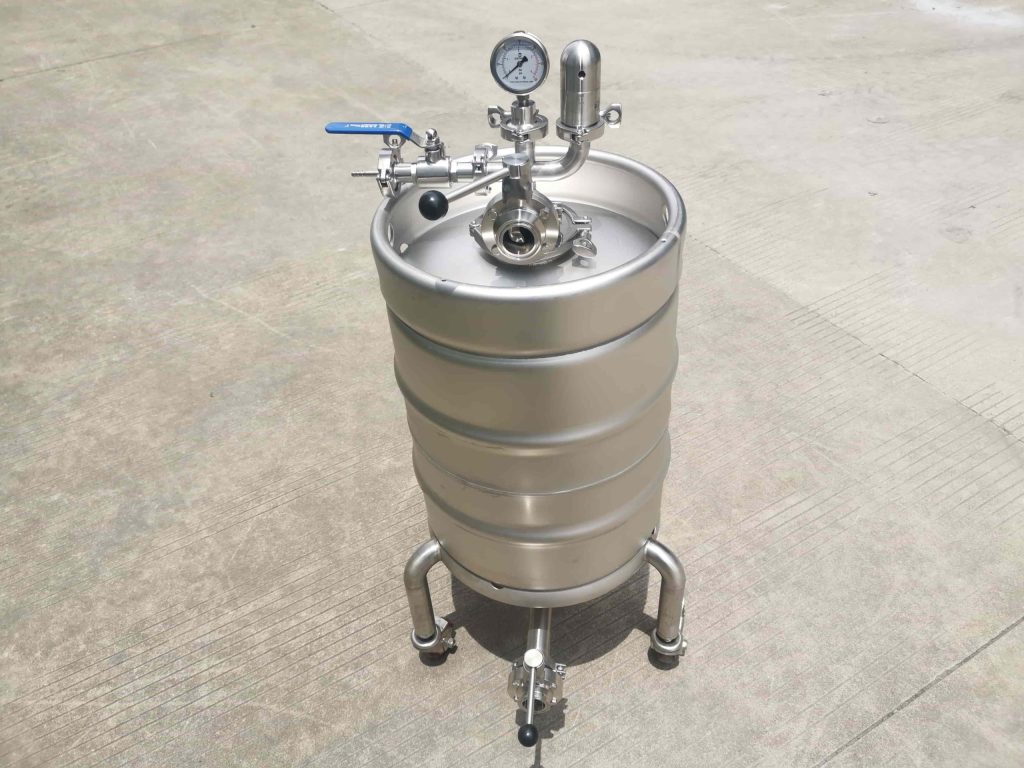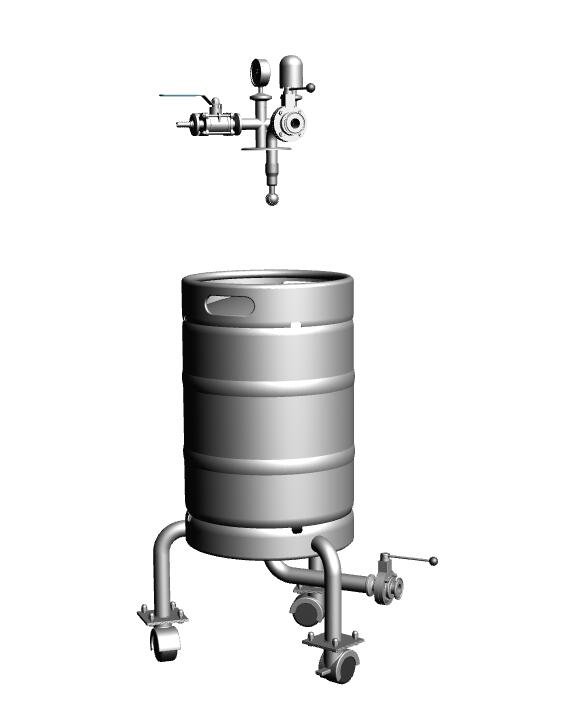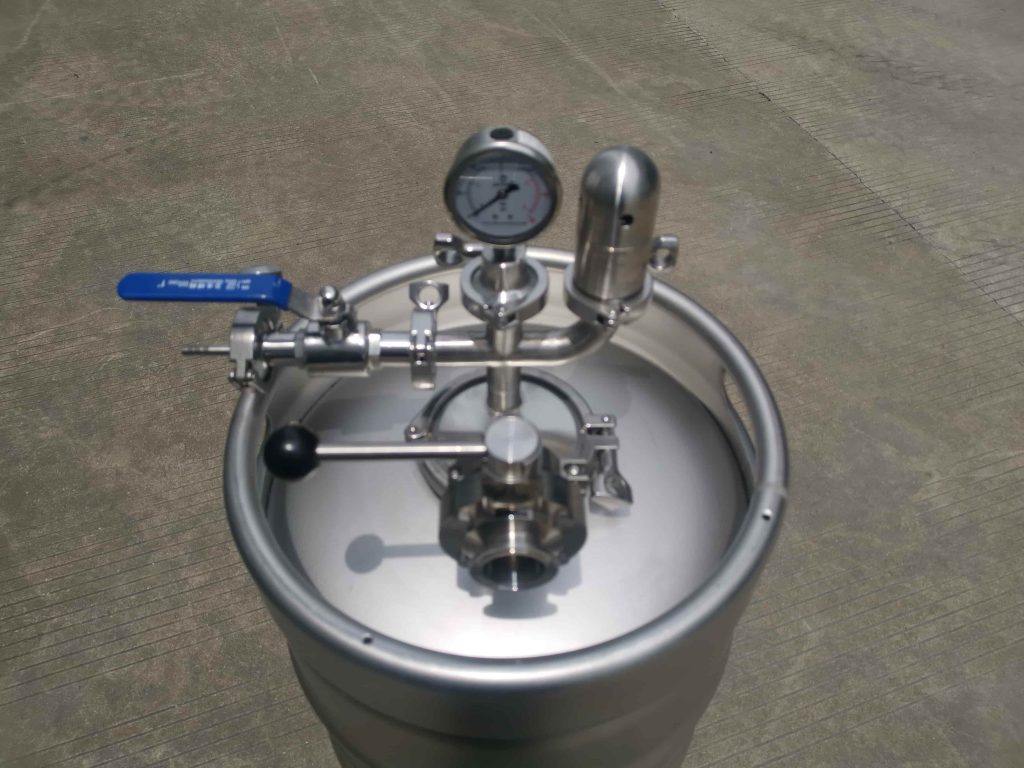introduzione

Craft brewing has evolved significantly over the years, with innovations in techniques and equipment paving the way for unique flavors and brewing experiences. One such innovation is the use of a small yeast brink, which offers numerous benefits for brewers. In this blog, we will explore the advantages of using a small yeast brink in craft brewing, addressing how it enhances the brewing process, improves quality, and contributes to flavor development.
Che cosa è un Small Yeast Brink?
Before delving into the benefits, it’s important to understand what a small yeast brink is. A yeast brink is a vessel used to store and manage yeast in the brewing process. The term “small” indicates that these brinks are typically more compact than traditional yeast management systems, allowing for easier handling and more efficient use of yeast. This compact size is particularly beneficial for small-scale and craft breweries, where space can be limited.
Benefits of Using a Small Yeast Brink
Efficienza dello spazio
One of the most significant advantages of using a mini yeast brink is its space efficiency. Craft breweries often operate in confined spaces, making it essential to optimize every square foot. A small yeast brink occupies less floor area, allowing brewers to allocate space for other critical brewing equipment.
Improved Yeast Management
Managing yeast health and viability is crucial for brewing quality beer. A small yeast brink allows for more precise control over yeast populations. Brewers can easily monitor and adjust yeast levels, leading to healthier fermentation. This improved yeast management results in consistent and high-quality beer production.
Enhanced Flavor Profiles
Using a mini yeast brink can lead to enhanced flavor profiles in the final product. With better control over yeast pitching rates and fermentation conditions, brewers can achieve specific flavor characteristics that distinguish their beers. The small volume of yeast allows for more experimentation with different strains, further enriching the brewing palette.
Reduced Oxygen Exposure
Oxygen exposure can lead to off-flavors and spoilage in beer. Small yeast brinks are designed to minimize oxygen ingress during yeast transfer and storage. This reduced oxygen exposure helps maintain the integrity of the yeast, ensuring that the beer produced has a fresh, vibrant flavor.
Efficacia dei costi
For craft brewers, cost management is critical. A mini yeast brink can help reduce yeast wastage by allowing brewers to reuse and recycle yeast more effectively. By minimizing yeast loss, breweries can lower their production costs while maintaining high quality. This cost-effectiveness is a significant advantage for smaller operations that need to keep a close eye on their budgets.
Flexibility in Brewing Processes
The compact size of a small yeast brink allows for greater flexibility in brewing processes. Breweries can easily scale their operations up or down based on demand, using the small yeast brink to accommodate varying batch sizes. This adaptability makes it easier for brewers to experiment with new recipes or adjust production based on seasonal trends.
Benefici ambientali
Smaller brewing operations are increasingly focused on sustainability. By using a mini yeast brink, breweries can reduce their environmental footprint. Efficient yeast management leads to less waste, and the ability to reuse yeast contributes to a more sustainable brewing process. This commitment to sustainability can also appeal to environmentally-conscious consumers.
Comparison of Traditional Yeast Management vs. Small Yeast Brink
| Caratteristica | Traditional Yeast Management | Small Yeast Brink |
|---|---|---|
| Space Requirement | Larger tanks, requires more space | Compact design, space-efficient |
| Yeast Control | Less precise | Highly controlled |
| Sviluppo del sapore | Limited experimentation | Greater variety of flavors |
| Esposizione all'ossigeno | Higher risk | Minimized exposure |
| Efficienza dei costi | Higher yeast wastage | Reduced wastage |
| Scalabilità | Less flexible | Highly adaptable |
| Impatto ambientale | More waste | Sustainable practices |
Come implementare un Small Yeast Brink
Scegliere la taglia giusta
When selecting a small yeast brink, it’s important to consider the specific needs of your brewery. The size of the brink should align with your production volume and fermentation needs. Many manufacturers offer a range of sizes to accommodate different operations.
Proper Yeast Management Techniques
To maximize the benefits of a small yeast brink, it’s essential to employ effective yeast management techniques. This includes regular monitoring of yeast health, pitching rates, and fermentation conditions. Keeping detailed records can help identify trends and optimize future brews.
Experimenting with Different Strains
One of the most exciting aspects of using a small yeast brink is the ability to experiment with various yeast strains. Craft brewers can test out different strains and blends to find unique flavor profiles. Keeping notes on each batch will help in refining recipes over time.
Formazione del personale
Ensuring that staff are trained in the use of a small yeast brink is crucial for success. All personnel should understand how to properly manage yeast, maintain the brink, and monitor fermentation. Ongoing training can enhance overall brewing quality and consistency.
Sfide e considerazioni

Investimento iniziale
While a small yeast brink can offer many advantages, the initial investment might be a consideration for some craft breweries. It’s essential to evaluate the potential return on investment (ROI) based on the expected improvements in efficiency and quality.
Manutenzione e cura
Like any brewing equipment, a small yeast brink requires regular maintenance and care. Breweries must develop a cleaning and maintenance schedule to ensure optimal performance. Neglecting maintenance can lead to contamination or reduced yeast viability.
Conclusione
The benefits of using a piccolo bordo di lievito in craft brewing are numerous, from space efficiency and improved yeast management to enhanced flavor profiles and sustainability. As the craft beer industry continues to grow, brewers who adopt innovative techniques, like utilizing a small yeast brink, will be better positioned to produce high-quality, distinctive beers. The ability to manage yeast effectively and experiment with different strains not only elevates the brewing process but also contributes to the overall success of a brewery.
FAQ
What is the main advantage of a piccolo bordo di lievito?
The main advantage is its space efficiency, allowing for better yeast management and improved brewing flexibility.
How does a small yeast brink affect beer flavor?
It allows brewers to control yeast pitching rates and fermentation conditions more precisely, resulting in enhanced flavor profiles.
Potere small yeast brinks be used for all types of beer?
Yes, they can be used for a wide variety of beer styles, accommodating different yeast strains and brewing processes.
What maintenance is required for a small yeast brink?
Regular cleaning and monitoring of yeast health are essential to maintain optimal performance and prevent contamination.
Sono small yeast brinks cost-effective for small breweries?
Yes, they can reduce yeast wastage and production costs, making them an attractive option for small breweries.

